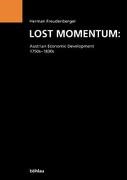En savoir plus
By 1810 the Austrian empire had achieved an economic momentum that seemed to promise substantial success. It may have been in as good a position as, if not better than, the territorial entities of Germany proper. The present study began with the idea that in its institutional framework as well as in its natural resources the Habsburg monarchy was in a respectable position for development. Austria had been brought to this point by a great momentum that originated with Maria Theresia and continued with her energetic, if politically unwise, son Joseph II as well as her more pedestrian grandson Franz. Austrian policy promoting economic development was a combination of government action and private initiative, which was, of course, not unique to Austria, but the persistence of bureaucratic interference and the weakness of private entrepreneurship proved harmful. By design this study places major emphasis on human activities. Consequently, the roles of central government bureaucrats and regional and local officials have been stressed. Even more emphasis has been placed, however, on Austrian, Moravian and Bohemian entrepreneurs with mercantile and artisan backgrounds, Swiss and west German Protestants and indigenous and foreign Jews and finally and importantly aristocratic landowners.
Résumé
By 1810 the Austrian empire had achieved an economic momentum that seemed to promise substantial success. It may have been in as good a position as, if not better than, the territorial entities of Germany proper. The present study began with the idea that in its institutional framework as well as in its natural resources the Habsburg monarchy was in a respectable position for development. Austria had been brought to this point by a great momentum that originated with Maria Theresia and continued with her energetic, if politically unwise, son Joseph II as well as her more pedestrian grandson Franz. Austrian policy promoting economic development was a combination of government action and private initiative, which was, of course, not unique to Austria, but the persistence of bureaucratic interference and the weakness of private entrepreneurship proved harmful. By design this study places major emphasis on human activities. Consequently, the roles of central government bureaucrats and regional and local officials have been stressed. Even more emphasis has been placed, however, on Austrian, Moravian and Bohemian entrepreneurs with mercantile and artisan backgrounds, Swiss and west German Protestants and indigenous and foreign Jews and finally and importantly aristocratic landowners.
Texte suppl.
Der Autor untersucht die österreichische Wirtschaftsentwicklung in den
Jahren zwischen 1750 und 1830. Der erste große Einschnitt fand nach dem
Ende der ersten Preußenkriege um 1750 unter Maria Theresia statt. Dieser
Aufschwung nahm unter Joseph II. und, wenn auch in abgeschwächter Form,
unter Franz I. seine Fortsetzung. Wirtschaftsfreundliche Gesetze traten
in Kraft und hatten langfristige Auswirkungen bis über das Ende des Untersuchungszeitraumes
hinaus. 1811 brachte der Staatsbankrott dann einen schmerzlichen Einbruch
für die österreichische Wirtschaft und eine entsprechende Verlangsamung
des Wirtschaftswachstums. Die 1830er Jahre waren durch Ereignisse wie die
französische und belgische Revolution im Jahre 1830, die Gründung des deutschen
Zollvereins 1834 und den Tod Kaiser Franz I. 1835 geprägt. Gleichzeitig
konnte auch wieder ein beschleunigtes Wirtschaftswachstum beobachtet werden.

